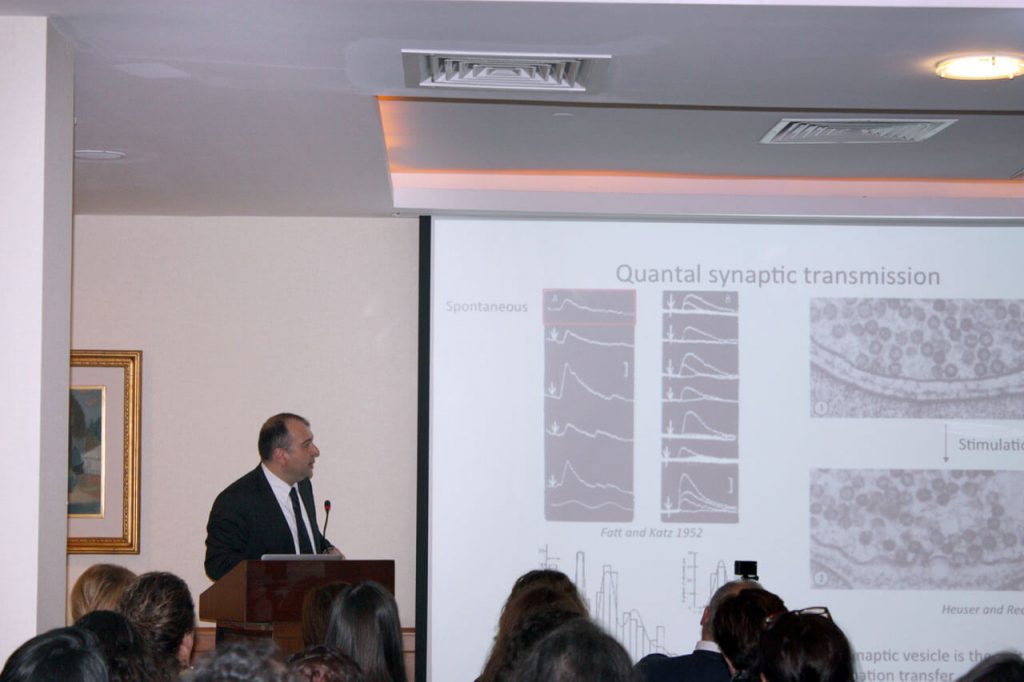Prof. Dr. Ege Taner Kavalalı, who has been working on neurotransmission over 25 years and has prepared more than 70 scientific studies on this issue, held a seminar to talk about the secrets behind the working principles of our brain’s on March 14, 2017 at Hilton Istanbul Bosphorus Hotel within the scope of Cigdem Guven Seminars.
The seminar started with the opening speech made by Cigdem Guven, and then Prof. Dr. Ege Taner Kavalalı talked about his educational career. He met the biomedical field while preparing the senior design project in Bogazici University Electrical and Electronics Engineering and he pursued this field by entering Rutgers University to complete his doctorate. While continuing his academic career as a guest lecturer at the University of California, Berkeley, he received a job offer from the University of Texas and he continued his studies at the Medical Center of University of Texas.
Prof. Dr. Ege Taner Kavalalı continued his presentation by explaining how the synapses are functioning, how our memory is shaped and how each function of our brain is realized. Than the seminar go on with analyzing the working mechanisms of billions of synapses, which are effective in the formation of neural networks with each other in our central nervous system, and also it was mentioned that information extracted from this area sheds light on the unknowns of the functioning of our bodies.
The seminar continued with explaining the mechanism of the communication between the neurons by the synapses. The enormous number of synapses found in our brain and the variation of this number in relation to the age were pointed out. Prof. Dr. Ege Taner Kavalalı said that “A newborn person has 10,000 trillion synapses, and this number decreases inversely with age increase and stabilizes in adults. This decrease in the number of synapses should not be considered as a loss unlike what is known. One of the ways in which the brain develops itself is to program the brain by tearing off synapses.”
Prof. Dr. Ege Taner Kavalalı stated that our daily activities, our mood changes and everything we face during the day affects our brain and synapses and it changes the structure. Neuroscience is a relatively new science field and there are many more studies that need to be done in this area. Explaining how our brain works is one of the biggest problems that human beings face.
Share:
Recent News

Neova Sigorta Leadership Certifi ...
Neova Sigorta Leadership Certificate Program from a Coaching Perspective ha ...

We have completed our Kafein Tec ...
We have completed our Kafein Technology Strategic Leadership Training.

We completed our training at the ...
We completed our training at the Istanbul City Council "The Budget is Yours ...

Banka Şube Müdürünün El Kitabı 2 ...
Banka Şube Müdürünün El Kitabı 2. Baskı Çıktı – Çiğdem Güven

The Global Leadership Program
The Global Leadership Program held on October 22, 2021 was completed.

Hacettepe University Entrepreneu ...
Hacettepe University Entrepreneurship and Investment Society

The webinars for Team Motivation ...
The webinars for Team Motivation, Crisis Management, Digital Leadership and ...
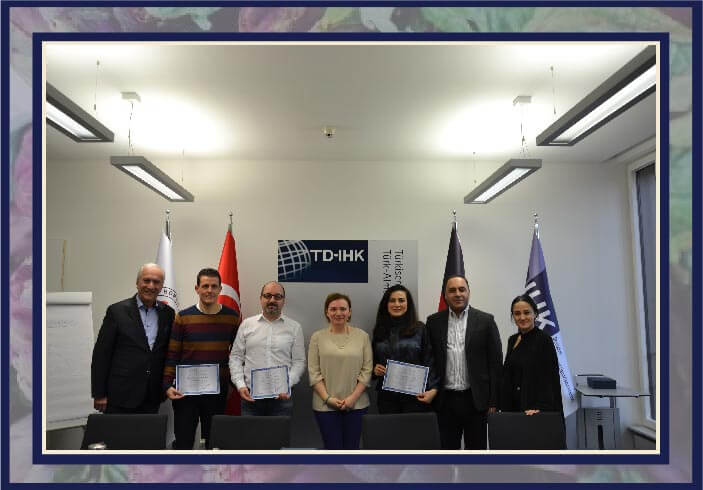
Coaching and Effective Communica ...
Coaching and Effective Communication Training TD-IHK

"On Coaching and Communication i ...
Coaching is a service that forms the basis of success stories by creating a ...
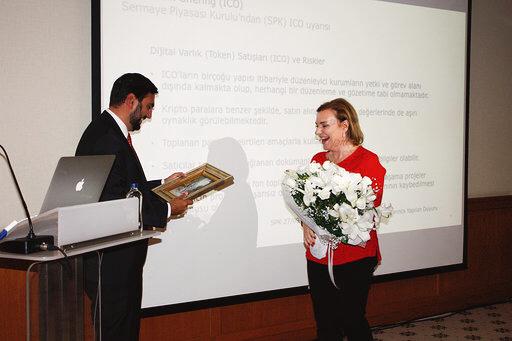
The Future of Digital Finance in ...
The Cigdem Guven Seminars welcomed one of the most successful businesspeopl ...

Making Life Beautiful With Plast ...
Çiğdem Güven Seminars, which welcomes the specialist and inspirational spea ...

The Secrets of How Our Brains Wo ...
The seminar started with the opening speech made by Cigdem Guven, and then ...
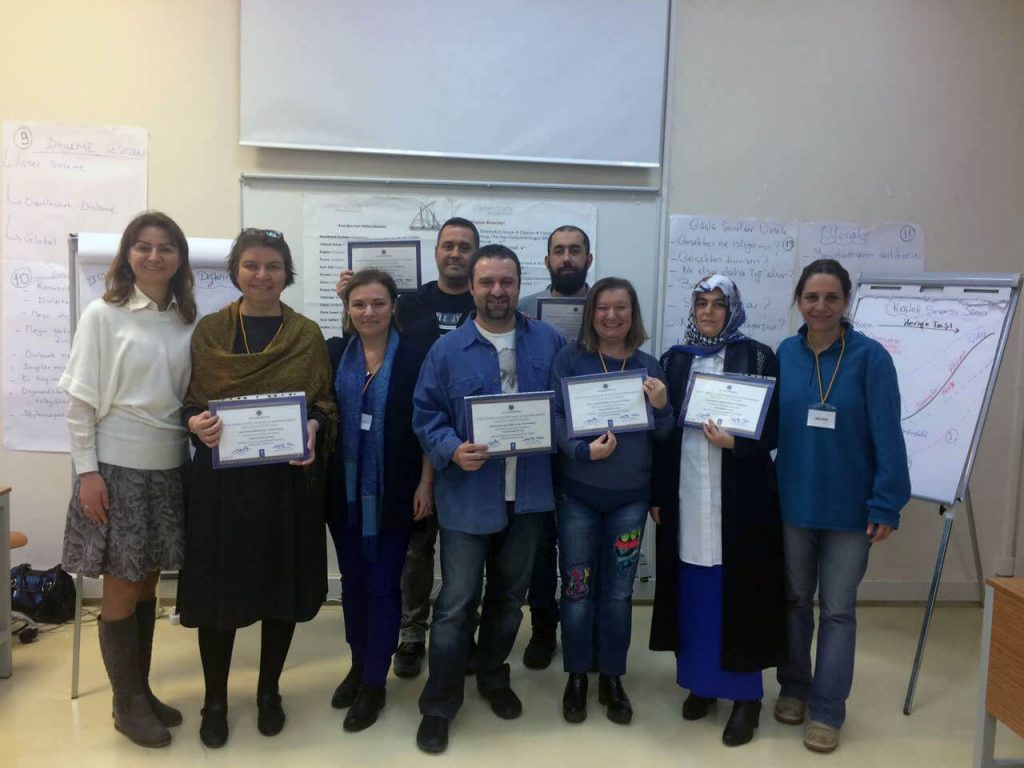
Yildiz Technical University Coac ...
Those who want to make a professional entry to the personal development sec ...
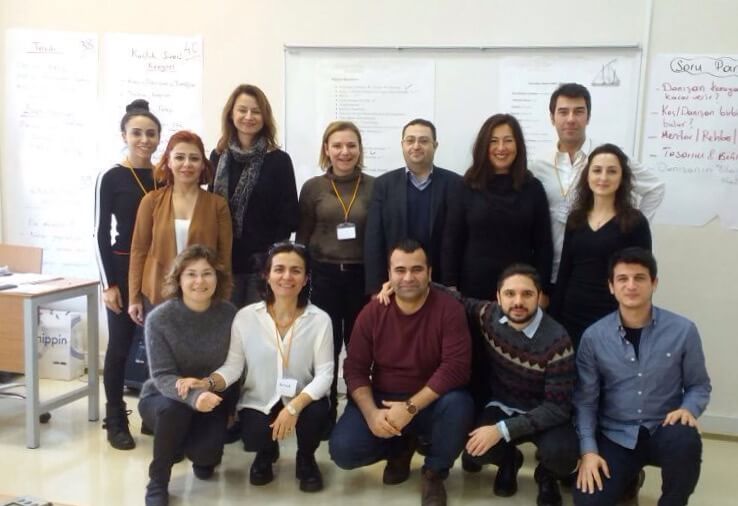
Yildiz Technical University Coac ...
Yıldız Technical University’s Coaching Certification Program aims to fulfil ...

Making Life Beautiful With Plast ...
Bringing different point of views with its successful and authentic speaker ...
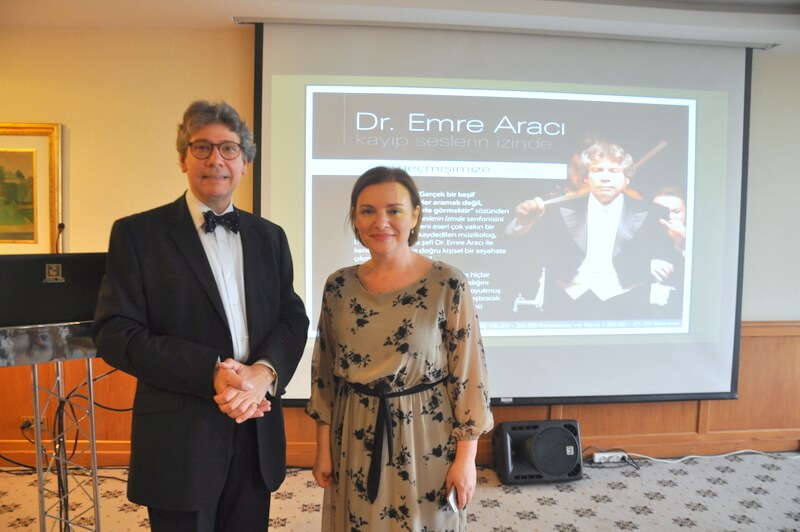
In Search of Lost Sounds – A Per ...
Aiming to provide different perspectives about life with its inspiring gues ...
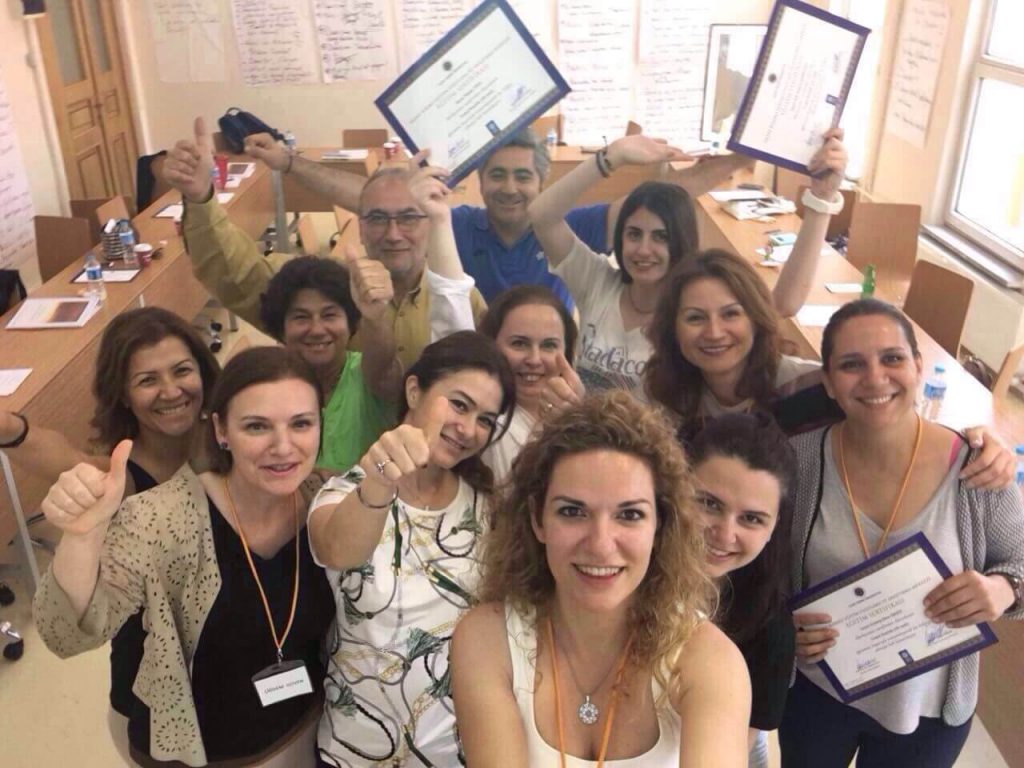
Yıldız Technical University Coac ...
In addition to having provided leading senior executives with individualize ...

To Succeed is to Discover Yourse ...
Çiğdem Güven, who has been bringing many well-known experts of different ar ...
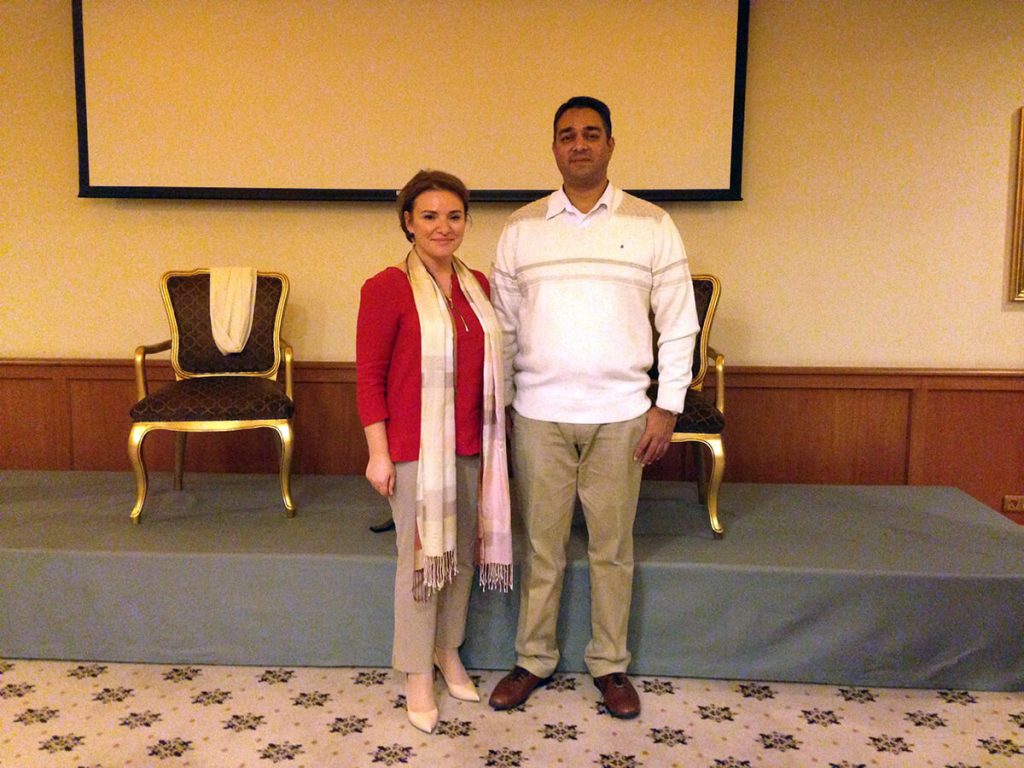
Dealing With Life’s Storms, With ...
Çiğdem Güven, who has been bringing many well-known experts of different ar ...

Peace of Mind With Spiritualist ...
Providing individualized coaching services to leading senior executives wit ...
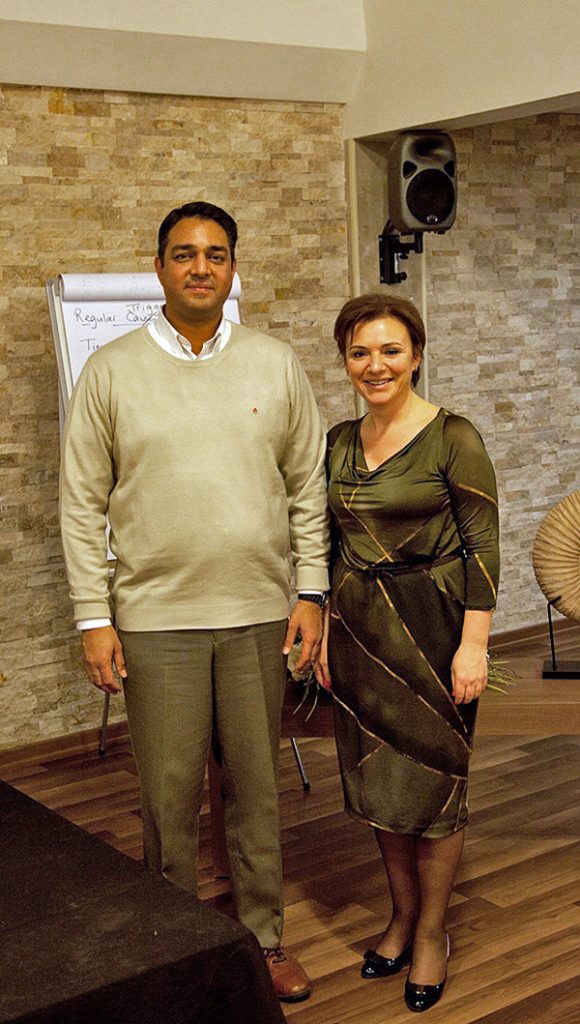
Spiritual Intelligence With Yoge ...
Aiming to provide different perspectives about life with its inspiring gues ...

